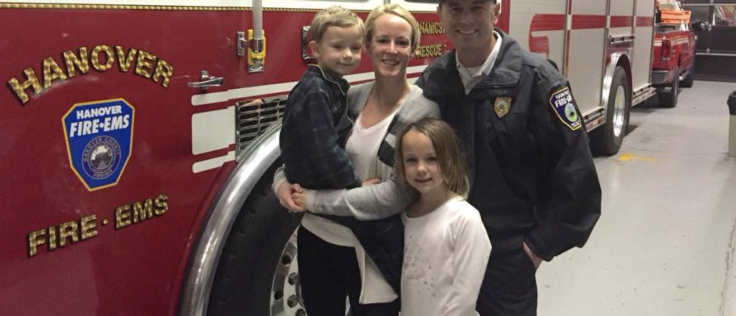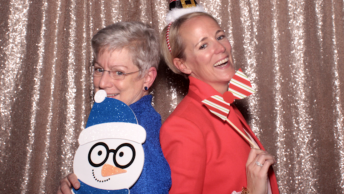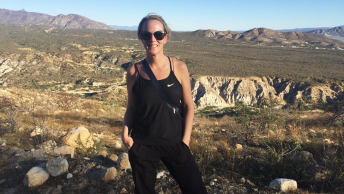Making assumptions about others is a lose-lose situation.
A few weeks ago, I attended a family festival in the community where my older brother lives. As the two of us were weaving our four children in and out of bouncy castles, I noticed a guy that I assumed was a firefighter standing in front of a fire truck, smoking a cigarette.
Right on cue, my gerbils—fueled by assumptions—started sprinting on their wheels.
Since my brother has been a firefighter for 24 years, I thought he’d appreciate the situation in front of us.
I said, “Seems ironic that a firefighter in uniform is smoking a cigarette in front of all these kids, ya think?”
My brother: “What makes you think he’s a firefighter?”
Me: “He has on navy-blue pants and a navy-blue T-shirt just like all the other firefighters he’s talking to.”
My brother: “That’s funny. I know the guy, and he’s not a firefighter. He just happens to have on similar clothes. And get this, 16 years ago he was wrongly convicted of murder and just released from prison two weeks ago, after DNA evidence proved he was innocent.”
Good Lord, I’m a jerk.
I couldn’t decide whether to run over and give the guy a hug, beg to interview him about all his trials and tribulations Oprah-style, or head over to Wawa and buy him a carton of cigarettes for his troubles.
This wasn’t the first time I rolled down such a slippery slope. Usually, though, I am making erroneous assumptions about other moms. Often my observations begin with admiration of another mother but quickly transition to condemnation—of myself.
How many times has this scenario happened to you? You stop by your friend Sarah’s house and notice that it’s incredibly clean and tidy (no dog hair on the couch, underwear on the floor, or sharpie lines on the walls like at your house), and you assume she excels at every area of her life. Man, Sarah keeps a clean house, quickly turns into, I bet she cooks filet mignon every night, just got another promotion at work, and knits scarves for orphans on weekends. I gotta get my shit together.
While it’s tempting to go down this rabbit hole, there’s no correlation between a mother’s good housekeeping and her charitable work for children without parents.
In a wonderfully simple book called The Four Agreements, author Don Miguel Ruiz outlines the four agreements you should make with yourself to find freedom. They are: 1. Be impeccable with your words. 2. Don’t take anything personally. 3. Don’t make assumptions. 4. Always do your best. Regarding #3, he says: “The problem with making assumptions is that we believe they are the truth. We could swear they are real.
We make assumptions about what others are doing or thinking—we take it personally—then we react by sending emotional poison with our thoughts. Whenever we make assumptions, we’re asking for problems.” A prime example: The other day one of my friends, Elizabeth, mentioned that she didn’t have a television growing up and that her primary form of entertainment was reading books and using her imagination.
My reaction: “Oh wow, your parents sound amazing. I wish I could get the television out of our house, but I’m way too lazy to force my kids to read on a regular basis.”
Elizabeth’s response: “We didn’t have a television growing up because my parents were poor, not because they were transcendental hippies on a mission to shape my mind.”
Oh, right. Being a mother is ridiculously hard and making assumptions about other mothers just makes it harder. We’ve got enough to worry about—there’s no sense in creating more angst based on fictitious stories we make up in our minds. When you’re presented with facts in your life, do your best to stay on the facts side of the street. Don’t take the off-ramp into the land of fiction. Elizabeth didn’t have a television when she was growing up… Sarah has a clean house… A guy in a blue T-shirt is smoking a cigarette… Any assumptions you’d make to complete these sentences are likely untrue.
So, stop short of completing the sentences. Facts are facts, and assumptions are dangerous. When we make assumptions about other people, we turn basic facts into so much more—and ourselves into so much less.






